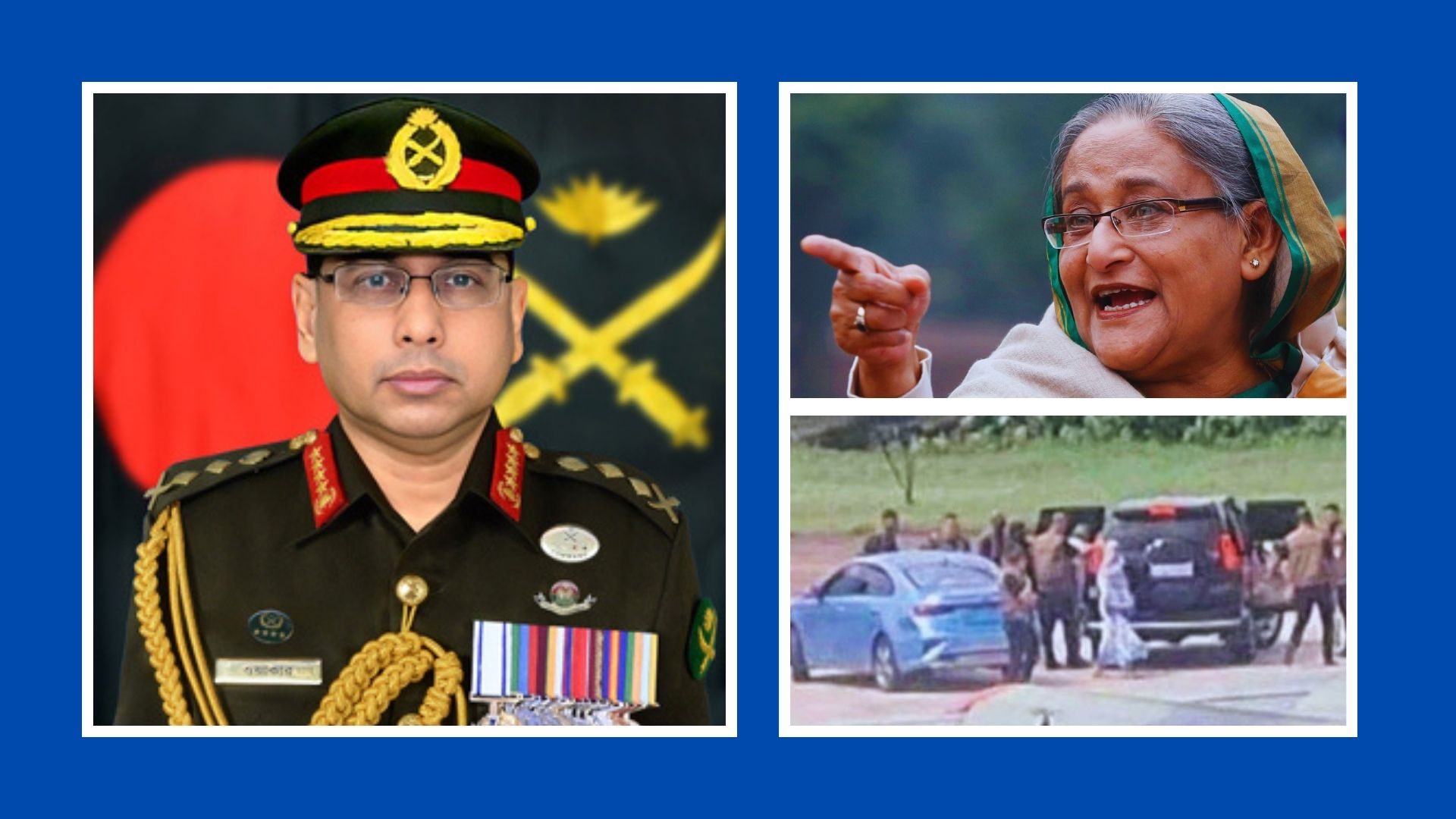Why Did Sheikh Hasina Receive a Safe Exit? Army Chief Explains
Many are questioning whether it was right to grant former Prime Minister Sheikh Hasina a safe exit, or if she should have been kept in the country for trial. Recently, in an interview with the Canada-based Bangla media outlet, Nagorik Television, Army Chief Waker-Uz-Zaman provided an answer to this question.
In a recent phone interview with Nagorik Television, the Army Chief stated, "I was in discussions with political parties. At that time, I learned that Sheikh Hasina was leaving. However, I did not know she was leaving the country. I believe that if she had stayed in the country, her life could have been at risk. No one wants an extrajudicial killing, and it is certainly not desirable."
He continued, "If everyone works together, it will be possible to reform the country. We can proceed with a smooth democratic process. The army is also working with the government. We must move toward that goal because we cannot leave this process half-finished. There is no turning back from this goal."
Addressing the public, he said, "Many are spreading rumors. News is being presented in various ways by mixing truth with lies, which creates misconceptions among people. This is not appropriate." He also urged the public to be patient and to rely on truthful news.
In response to a question about whether mainstream media is acting responsibly, he said, "Many are acting responsibly. They are not mixing truth with lies. However, they still have more work to do. Given time, the media will gradually become more active."
He remarked, "16 years of chaos won't be resolved in 16 days," adding, "It would be good if the problems could be resolved in 16 months. Issues exist in all sectors, including bureaucracy and police. This government needs time to address these issues. We must not be impatient."
When asked whether there is any concern about the presence of many supporters of the previous government in various positions within the administration, he replied, "This has to be corrected gradually. Civil servants work with the government in power. This does not mean that everyone supported a 'dictatorship.' They have to perform their daily duties. In some cases, they have done good work, while in others, they have not. But it is not fair to label everyone. However, those who are guilty must be identified and punished."
Regarding actions against accused army officers, the General said, "Investigations are ongoing. If someone is found guilty, action will certainly be taken. Investigations are being conducted on many matters. No action can be taken against anyone without evidence. The process is a bit slow. There are several issues that need to be addressed."
When asked why the army is not returning to the barracks, Waker-Uz-Zaman said, "We want to return to the barracks as soon as possible. However, since the police are not yet in a position to take over responsibilities, the army may have to stay for some time. The police force was almost broken. Once they are in a position to take over responsibilities, the army will certainly return to the barracks. We do not want to stay longer than necessary."
Regarding recent protests and demands, the Army Chief said, "The army is countering these issues. There was a problem at the Rural Electrification Board. The army convinced them to back down. Many people are in distress. However, these issues need to be resolved slowly and with patience. Action has been taken to pacify the Ansars."
